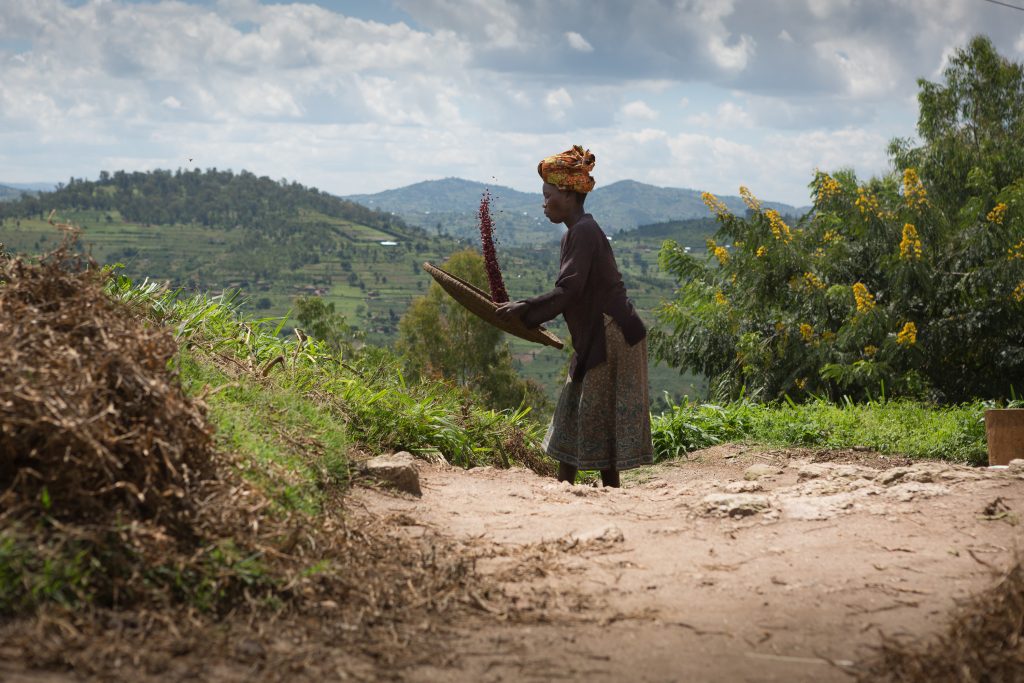2018 Climate-Smart Agriculture Project of the Year
The project transforms Rwanda’s rural communities and economy through climate information and historic data reconstruction.

A farmer in Nyanza, Rwanda winnowing beans. Francesco Fiondella/IRI.
The Rwanda Climate Services for Agriculture project has won the first Climate Smart Agriculture Project of the Year Award. The Aid & International Development Forum announced the news at its Africa Climate Smart Agriculture Summit in Nairobi earlier this week. The Rwanda project is led by IRI senior research scientist James Hansen, who oversees the Climate Services and Safety Nets Flagship Program of the CGIAR Research Program on Climate Change, Agriculture and Food Security (CCAFS). The United States Agency for International Development is funding the work.

Desire Kagabo, the Rwanda Climate Services for Agriculture Project Coordinator, accepts the 2018 Climate-Smart Agriculture Project of the Year Award in Nairobi. Photo supplied by AIDF.
IRI has helped Meteo Rwanda, the country’s national weather service, produce one of the most advanced suites of online climate information tools and products for agricultural decision makers available in Sub-Saharan Africa. Through its Enhancing National Climate Services (ENACTS) initiative, IRI worked with Meteo Rwanda to fill gaps in its historical climate records and create a high-resolution data set going back more than thirty years.
Now, the project team is working with other Rwandan partners to integrate the newly available climate products into the country’s national agricultural extension service, by training extension staff and volunteer farmers in a process known as Participatory Integrated Climate Services for Agriculture (PICSA). The trained personnel have so far led 75,000 farmers through the process of understanding local historical and forecast climate information and incorporating it into their farm and livelihood planning.
“Our collective work benefits from a particularly strong set of government and local and international partners and generous support from USAID at the level needed to strengthen Rwanda’s capacity to produce, deliver and use climate services,” says Hansen. “This investment of human and financial resources, and innovative solutions such as ENACTS and PICSA, have made it possible to make things that have previously only been demonstrated a pilot scale work for farmers on a national scale.”
Read more about the work and the award on the CCAFS blog and from Aid & International Development Forum.

You must be logged in to post a comment.